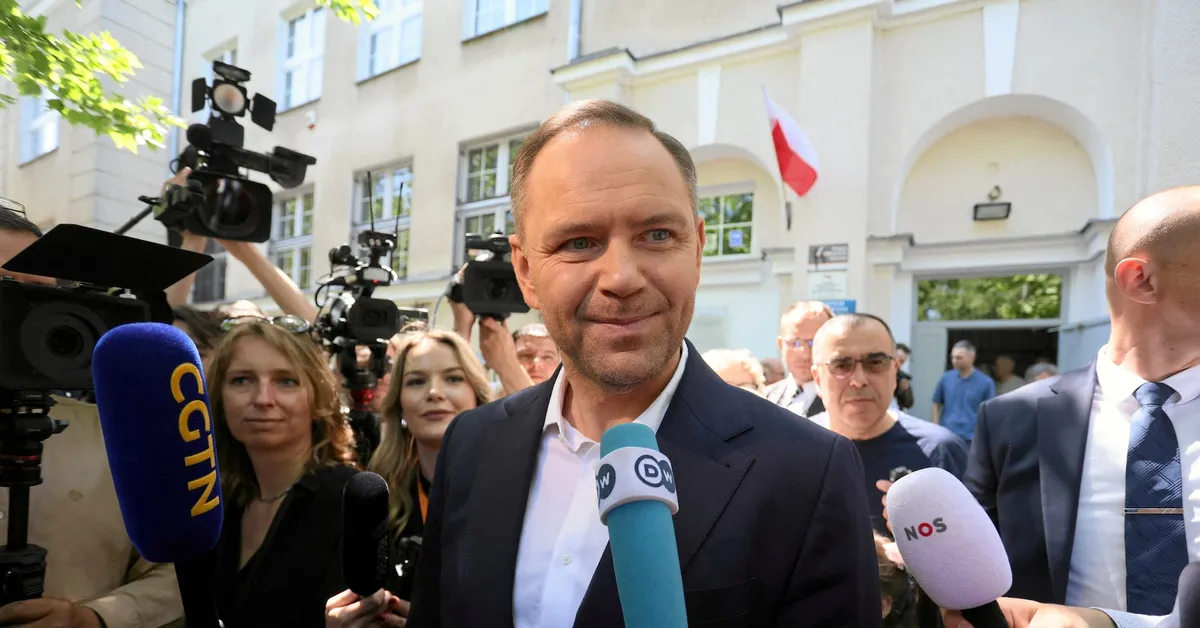
In a significant turn of events for Polish politics, Karol Nawrocki, the nationalist opposition candidate, emerged victorious in the second round of the country’s presidential election, securing 50.89% of the votes, as announced by the electoral commission on their official website early Monday morning. His opponent, Rafal Trzaskowski, the liberal mayor of Warsaw and ally of the current government led by Donald Tusk, garnered 49.11% of the votes.
At 42 years old, Nawrocki is a eurosceptic historian and an amateur boxer, who previously headed a national remembrance institute. His campaign focused on prioritizing economic and social policies that favor Polish citizens, especially in the context of the ongoing refugee crisis involving people from neighboring Ukraine. Nawrocki's stance resonated with many voters who are concerned about national identity and the socio-economic implications of immigration.
While Poland's parliament wields significant power, the president plays a crucial role in vetoing legislation. This election result is being closely monitored not just within Poland but also by international observers in Ukraine, Russia, the United States, and across the European Union. The implications of Nawrocki's presidency could have far-reaching effects on both domestic and foreign policy, particularly in relation to Poland's stance on immigration and EU relations.
In a noteworthy display of civic engagement, the electoral commission reported a record voter turnout of 71.31% for the second round of the presidential election. Current President Andrzej Duda, also a conservative, expressed his gratitude on the social media platform X, thanking the Polish citizens for their active participation. "Thank you for participating in the presidential elections. For the turnout. For fulfilling your civic duty," Duda wrote, congratulating Nawrocki on his victory and encouraging the nation to "stay strong."
This election marks a pivotal moment in Polish politics, with Nawrocki's victory signaling a potential shift towards more nationalist policies. As the country moves forward, the focus will likely be on how Nawrocki plans to implement his campaign promises and navigate the complex political landscape both domestically and in relation to international partners.